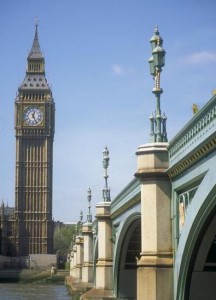Ref.Westminster City Council v Secretary of State for Communities and Local Government & Anor [2013] EWHC 23
Westminster Local Authority has failed in its pursuance of a case to the Court of Appeal, seeking to quash an inspector’s ruling that a restaurant was entitled to a lawful development certificate for its use of an area of pavement for tables and chairs.
The case saw Mr Julian Cordani, owner of the restaurant in question, appeal against Westminster Council’s decision not to grant a Certificate of Lawfulness of Existing Use or Development (CLEUD).
The inspector found that Westminster’s decision to refuse the application for a CLEUD was unfounded. The inspector believed that the use had lasted for a continuous period of ten years, dating back from Cordani’s application in March 2010. The fact that the tables and chairs were taken into the restaurant each night when the restaurant closed did not indicate that there was a significant interruption in the continuity of the unauthorised use of the land – a judgement that sensibly echoes the principles of prescription regarding the similar issue of legal easements.
Westminster is reported to have sought a quashing order under s. 288 of the Town and Country Planning Act 1990 (as amended), claiming that the inspector acted unlawfully in:

-Â Â Â Â Â Â Â Â Issuing a CLEUD which went beyond what the evidence would support.
-Â Â Â Â Â Â Â Â Failing to apply to the Secretary of State’s own policy on the drafting of CLEUDs.
-Â Â Â Â Â Â Â Â Failing to give sufficient reasons to explain why he was satisfied that the use was in continuous use for tables and chairs, and could be described in such general terms, notwithstanding the legal principles and the Secretary of State’s policy.
HHJ Anthony Thornton QC dismissed the council’s appeal on a point by point basis.
To the first point, he commented:
“The CLEUD clearly and correctly defined the use of the pavement in the same terms as the use that had acquired immunity. The defined use was not therefore a more extensive use than the immune use that was being certified as lawful.
“Furthermore, there had been no significant periods of interrupted use throughout the qualifying period and such interruptions as had occurred were found by the inspector to have been interruptions that could naturally arise when the pavement was being used in connection with the restaurant.â€
To the second, he added that “all the inspector’s findings concerned with the restaurant’s use of the pavement were findings of fact and the decision and the wording of the CLEUD involved no errors of lawâ€.
To the third point, he relied on information provided by six separate witnesses to conclude:
“The evidence showed, as the inspector found, that the pavement furniture had been used by the restaurant in connection with its business and was not merely used by being placed on the pavement. That furniture was taken into the restaurant for safe keeping whenever the restaurant was closed as a normal feature of restaurant use of pavement furniture.
“The evidence showed that the restaurant used its pavement furniture in this way not only when the restaurant closed for the night but also when it closed for other reasons such as for holidays and when customer demand did not require the use of the external pavement facilities.â€
All the statements submitted were to the effect that the restaurant’s use of the pavement was continuous. The nature of the restaurant, being a business, meant that the use could only be taken advantage of whilst the restaurant was open for business. Breaking for the night-time, and thus removing the pavement furniture, was a perfectly reasonable course of action in the circumstances and should be seen to have had no affect on the continuity of use.
In full support of the original inspector’s findings, the court decided against Westminster and permitted the granting of a CLEUD.
In the context of great difficulties for ‘bricks and mortar’ establishments on British high streets (a matter we have written on elsewhere in this newsletter), any small victory like this one will no doubt be welcome for cafes and restaurants wishing for unhindered use of their all important pavement spaces – particularly as an undoubtedly warm and pleasant summer is coming our way….
—
We value your input. If you have thoughts or opinions on this article or subject, a suggestion for a different article or would simply like to let us know you enjoyed it (or not!), please use the form below to provide feedback. Many thanks!
[contact-form][contact-field label=’Email’ type=’email’ required=’1’/][contact-field label=’I liked this article’ type=’checkbox’/][contact-field label=’I did not like this article’ type=’checkbox’/][contact-field label=’Comment’ type=’textarea’/][/contact-form]

